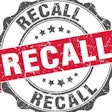
The Food Safety Modernization Act (FSMA) arguably is the largest overhaul of the United States’ human and animal food safety laws in the past 70 years. With the recent roll out of the US Food and Drug Administration (FDA)’s mandatory FSMA implementation rules comes a heightened level of operational risk for pet food manufacturers. Enforcement efforts have increased, as have the number of class-action lawsuits over a variety of product contamination issues, melamine being a case in point. Unfortunately, multi-million-dollar class-action settlements are becoming the norm.
FSMA, in theory, should ultimately help manufacturers reduce legal risks through implementation of best practices. Yet, one’s FSMA fate, so to speak, will be sealed over the next few months during this critical implementation phase. Failure to strategically approach FSMA implementation could lead to financially devastating consequences. Regulatory and litigation exposure risk, along with related legal fees and costs, can be minimized, if not avoided, by following a few simple practices during this critical implementation phase.
1. Review and revise your agreements. It goes without saying that the form contracts your lawyers prepared years ago will no longer be adequate to address FSMA-related risks. Review existing agreement templates and proposed contracts carefully to ensure that the risks have been addressed.
For example, each party’s responsibilities for FSMA-related supply chain interruptions should be defined. This is particularly true for products that contain foreign-sourced ingredients subject to Foreign Supplier Verification Program rules. Noncompliant ingredients may be stopped at the border, resulting in production stoppages. It is much cheaper to have disputes over who pays for such supply chain interruptions decided in advance by contractual agreement rather than by a judge or jury.
Similarly, agreements should include appropriate indemnities and standard insurance coverage minimums, including adding insured parties where necessary and requiring notification prior to cancellation. An attorney or insurance professional should review policy applications for representations made related to product safety as procedures may have changed under FSMA, rendering prior statements untrue. Insurance carriers have been known to decline coverage based on misstatements in insurance applications, so make sure the parties completing applications are knowledgeable about new processes and procedures implemented because of FSMA.
2. Consider requiring FSMA audits along your supply chain. It may be prudent to require suppliers to undertake periodic FSMA-specific audits. Include assessment standards, performance criteria, frequency of audits, time limits for remedying regulation noncompliance and allocation of audit costs. If third-party auditors are employed, include provisions regarding how third-party audit reports will be used; e.g., strictly for the benefit and use of the receiving facility, provided to the supplier, shared with supplier’s potential and new customers for pre-approval upon one or both contracting parties’ consent, possible inclusion within the Hazard Analysis and Risk-Based Preventative Controls (HARPC) plan, etc.
3. Engage legal counsel early and often. This may seem like a mere advertisement of our services, but the adage “you can pay me now or pay me later” rings particularly true in the context of FSMA compliance. Although FSMA rules are somewhat flexible in order to make them more practical and adaptable to individual facilities, that flexibility has created gray areas subject to interpretation. Choices must be made along the way, such as during the development of HARPC plans, educational programs and reporting documents. An attorney can help define the gray and, more importantly, attorney-client privilege protections gained through an attorney’s involvement in decision-making processes may later prove invaluable. Also, when an inspector comes knocking, counsel will be better equipped to respond quickly and help contain inspection outcome risks.
Before submitting a required FSMA compliance document or providing other information in response to an FDA request for information, have an attorney review your draft submission. Counsel can help narrowly tailor the submission to potentially avoid issues that may lead FDA to impose requirements that add costs. Providing too much information not only can unnecessarily expose a manufacturer to additional enforcement actions, but your submissions to FDA will be discoverable in litigation. Careful drafting is key, as noncompliance can obviously lead to significant business risks and possibly litigation. But, being overly compliant and not adequately protecting privileged or confidential information also can result in avoidable risk and financial cost.
Implementing these simple and relatively inexpensive business practices can ultimately lead to cost savings and a significant reduction in production and legal risk. To do otherwise would be penny-wise and pound-foolish—and not in a company’s best interests in the long run.
Joan K. Archer, PhD., JD, is a partner, and Megan Galey, JD, and Coty Hopinks-Baul are associates with the Food & Agribusiness department of national law firm Husch Blackwell LLP. The authors are experienced food and agribusiness attorneys, with special expertise in pet and human food safety, animal health and related manufacturing issues. Husch Blackwell is an international law firm with offices across the United States and in London. Dr. Archer is based in Kansas City, Missouri, USA, and Galey and Hopinks-Baul practice out of the firm’s St. Louis, Missouri, USA office.
More on the FSMA and the pet food industry
AFIA training sessions: https://goo.gl/JMBMQm
Regulatory trends in 2016: https://goo.gl/5aaL7F
Regulatory insights: https://goo.gl/B2kUd2
















